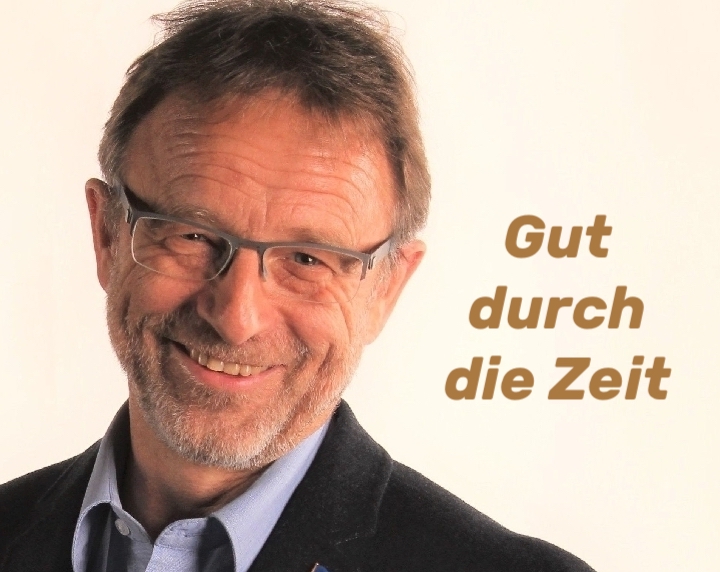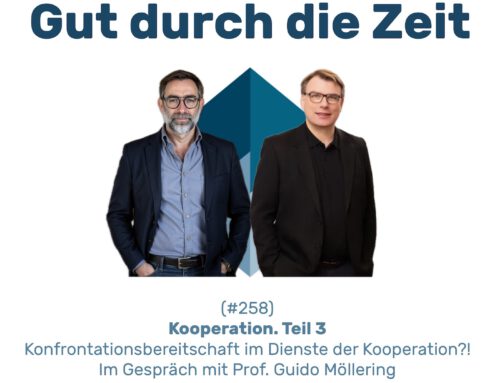INKOVEMA Podcast „Well through time“
#68 – The functional concept of mediation
What constitutes mediation activity in the light of the Mediation Act and is subject to its requirements? In conversation with Prof Dr Thomas Trenczek
Well through time. The podcast about mediation, conflict coaching and organisational consulting.
Prof. Dr.iur. Thomas TrenczekM.A., studied law and social sciences in Tübingen and Minneapolis (USA), law professor at the Ernst Abbe University in Jena, registered mediator (BMJ, Vienna; NMAS, Australia) and training trainer (BMWA); co-founder and long-standing first chairman of Waage Hannover e.V.; author and editor of numerous textbooks and handbooks/commentaries and specialist articles on mediation.
Key points on the functional concept of mediation:
(Excerpts from the lecture by Prof Dr Trenczek)
- The Mediation Act not only defines what mediation is (Section 1 (1) MediationsG), but also sets Minimum professional standards for the implementation of the mediation process, e.g.:
- Principles and procedure of mediation: § 1 para. 1, § 2 para. 2
- Tasks and role of the mediators: § 1 para. 1 and 2, § 2 para. 2, 3 and 6, § 3
- Exclusion of prior/post-referral: Section 3 (2)
- Role/rights of the parties to the conflict: § 2 para. 1, para. 2, para. 5
- Possibility of individual meetings: § 2 para. 3
- Involvement of third parties: § 2 para. 4
- Confidentiality: § 4
This raises the question of the scope of the Mediation Act: To whom does the Mediation Act apply? Who must comply with the above-mentioned professional standards? Who is obliged to provide the relevant information?
- According to § 1 para. 2 MediationsG Mediator an independent and neutral person without decision-making authority who guides the parties through the mediation process. The provisions of the Mediation Act link functional to the mediator within the meaning of Section 1 (2) Mediation Act, i.e. every mediator who conducts a mediation within the meaning of Section 1 (1) Mediation Act is subject to the normative and professional standards of the Mediation Act.
- The only decisive factor is the mandate agreed with the (conflict) parties. If a Mediation without decision-making authority of the third party in the dispute or that the parties themselves (on their own responsibility) work out a settlement or solution to the matter, then this is mediation within the meaning of Section 1 (1) MediationsG. This applies regardless of whether the process or procedure is labelled as "mediation", "coaching“, clarification assistance, moderation or conciliation. It also does not matter what the third person calls themselves, whether they are a counsellor, moderator, helper or supporter, clarification assistant, supervisor or lawyer. It also doesn't matter whether they work as procedural advisors, technical, scientific, medical, psychological or psychosocial specialists, managers, (probation, medical, health, nursing, rescue, dispute, ...) helpers*, counsellors*, judges*, pastoral workers*, engineers*, economists* or organisational and management consultants*, lawyers/attorneys-at-law.
- Section 1 (2) Mediation Act does not extend the scope of application to all users of mediation techniques ("methods") (cf. e.g. arbitrators pursuant to Section 278 (5) Code of Civil Procedure), however, the Mediation Act binding for all third parties/mediatorswho have agreed a mediation procedure with the parties within the meaning of Section 1 (1) Mediation Act. There are no exceptions with regard to the field of work and area of law - be it generally civil, family or criminal law, socio-educational, therapeutic, economic or of any other kind.
Left:
- Download the presentation by Prof Trenczek on the functional concept of mediation (here).





Leave A Comment